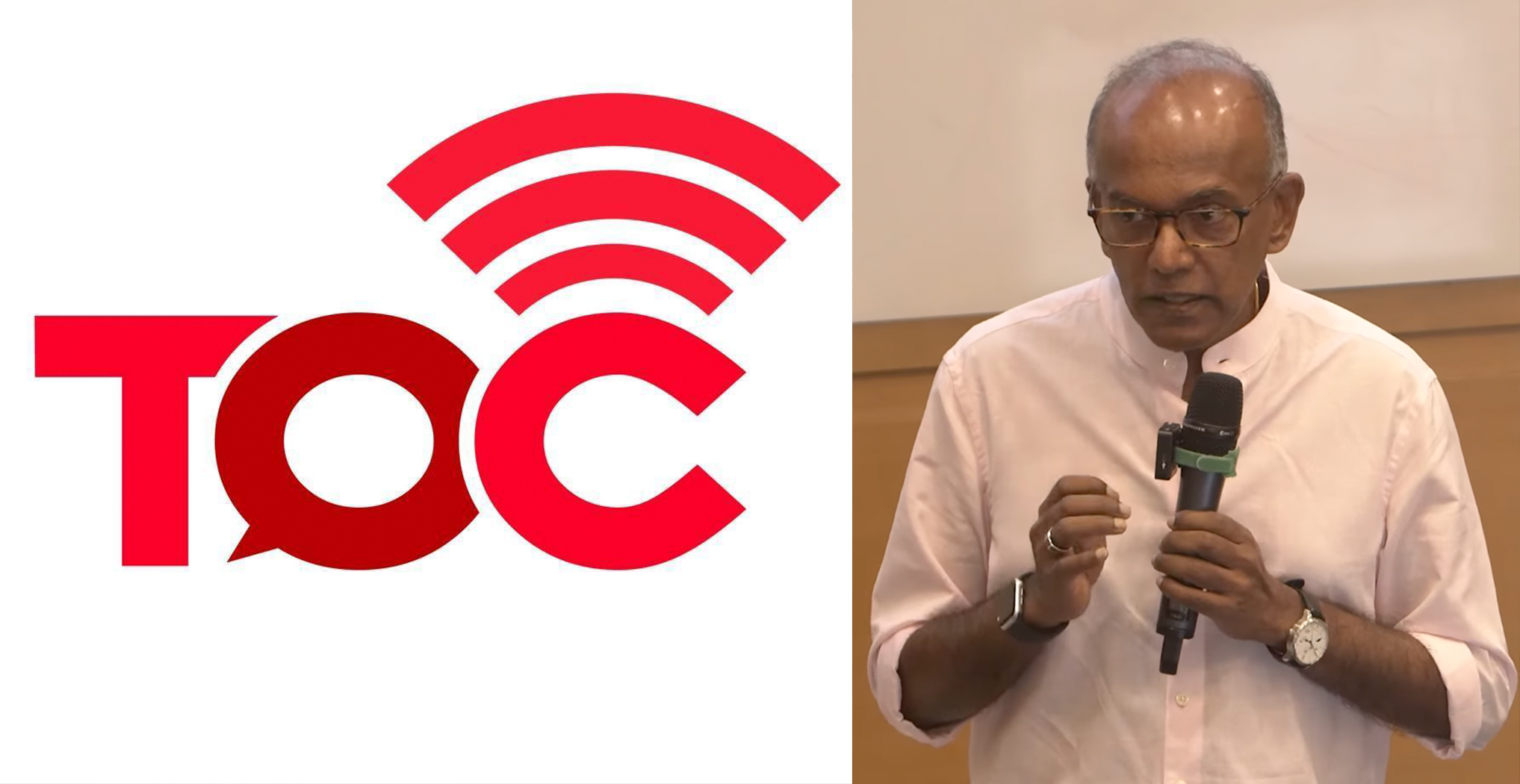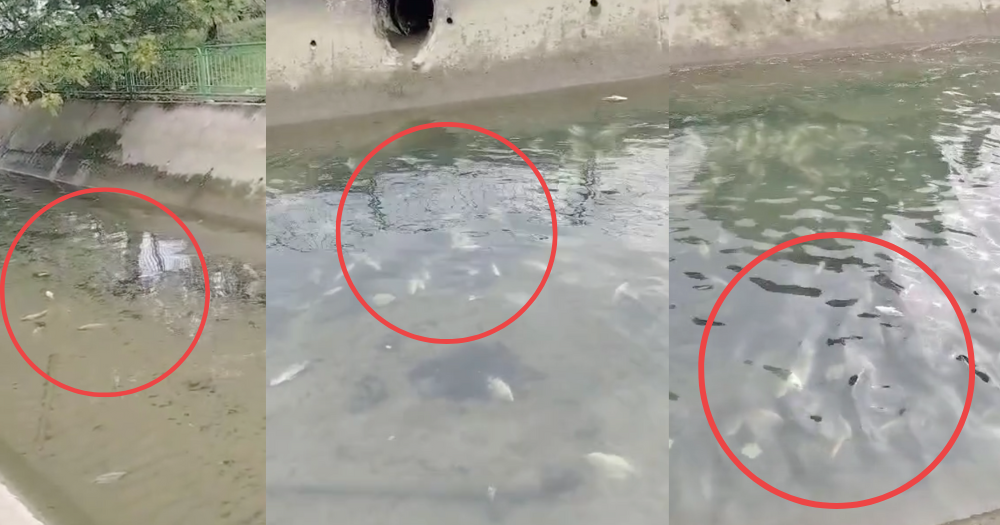TOC issued POFMA for false claim about S'pore's POFMA laws & misrepresenting Home Affairs Minister
Under the direction, TOC is required to insert a correction notice against each publication, with a link to the government’s clarification.

A correction direction under the Protection from Online Falsehoods and Manipulation Act (POFMA) has been issued to local publisher The Online Citizen (TOC).
In an article published Nov. 22, the publisher falsely claimed that the state suppresses dissenting views on the death penalty through POFMA correction directions, said the Ministry of Home Affairs in a press release.
It also presented an incomplete and misleading picture of statements by Home Affairs Minister K Shanmugam about Singapore's drug policies.
Under the direction, TOC is required to insert a correction notice against each publication, with a link to the government’s clarification.
It has since responded to the POFMA direction, calling the clarification "misleading".
False claims about POFMA
In the article, titled "Singapore’s death penalty: A deterrent, a statement or simply blind faith?", TOC alleged that the state suppresses dissenting views on the death penalty through POFMA correction directions.
It further alleged that by legally requiring advocacy groups to "label their statements as falsehoods" under POFMA, the state compels such groups to concede their views as false by government standards.
"This is false," MHA said.
It added that the state only issues POFMA directions if a false statement of fact has been made, and if it is in the public interest to do so.
Furthermore, such directions do not require the recipients to adopt the government's position, nor to remove the original post; only for the government's position to be carried alongside the post.
This is so readers can read the original post, alongside the official clarifications, and "come to their own conclusion", the ministry said.
"The state does not limit dissent, suppress alternative perspectives, stifle open debate or pressure dissenting voices to conform, as alleged by TOC."
False claims about minister's take on drug policies
MHA also said that the TOC article presented an "incomplete and misleading version" of what was said during a CNN interview with Shanmugam.
Through selective quoting, the article suggested that the minister "took contradictory positions about Singapore's drug policies".
During the CNN interview, Shanmugam spoke about Singapore's success in controlling drug trafficking, while also acknowledging that challenges in drug control continue.
The TOC article called this a "disconnect" and a position that "lack[s] coherence".
This, too, is false, said MHA.
Rather than being contradictory, Shanmugam first explained how Singapore has had relative success in controlling the drug situation in a region that is "literally swimming in drugs", through its zero-tolerance policy, including capital punishment.
He also emphasised that the war against drugs is a "continuous fight", and that the situation continues to be challenging.
Singapore must hence continue to deal with its challenges, including the proliferation of drugs in the region and a more permissive environment, he said.
"In context, it would be clear from the minister’s statements that Singapore’s success must be understood in relative terms, and that without Singapore’s zero-tolerance and comprehensive drug policy, including the death penalty, the drug situation in Singapore would be much worse," MHA said.
"The full context of what the minister said had not been set out by the article. It is misleading (and hence false) for the author to omit relevant facts, and selectively quote the minister, to reach the position that the minister had taken contradictory positions about Singapore’s anti-drug policies."
TOC's response
In response, TOC published a Facebook post on Dec. 16, calling the POFMA subject statement in the Factually article a "misrepresentation" and "invention".
The contested statement said that, in the TOC article, it was suggested that Shanmugam took "contradictory positions about Singapore's anti-drug policies".
But TOC denied this, saying that the original article text did not claim contradiction. Such framing, it added, was "inaccurate and misleading".
Instead, the article raised the juxtaposition of both statements, and criticised the potential disconnect or lack of coherence in the narrative.
It elaborated:
"The original text does not allege a direct contradiction but instead highlights the complexity of Singapore’s anti-drug policies and questions whether the narrative is consistently grounded in reality or strategically shaped."
As of Dec. 17, TOC has put up correction notices on the article as well as its Facebook page.
Top image from K Shanmugam/Facebook and TOC/Facebook
MORE STORIES




















